「自分の絵を客観視できない」でも、そもそも客観視は必要か?/カレー沢薫の創作相談
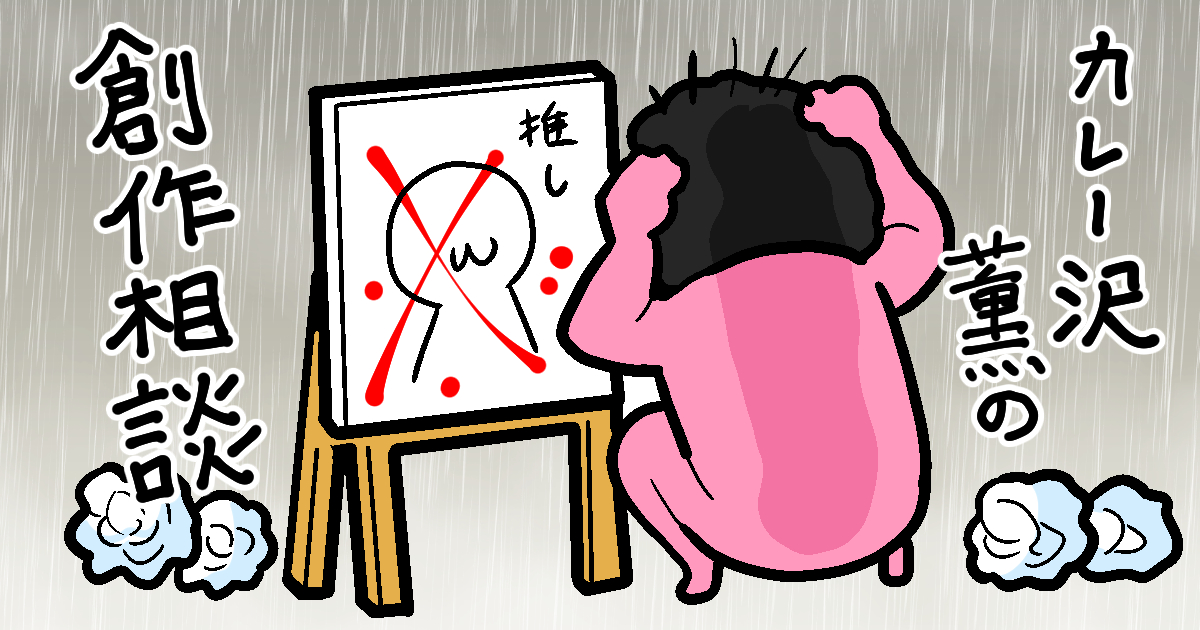
文/カレー沢 薫
比較対象がいなくて自分の絵を客観視できない
この相談をやっていて思うのは、この世には思った以上にオンリーワンかつナンバーワン、世界に一つだけの青っ洟を垂らしながら孤軍奮闘している創作者が存在するということです。
まずは核戦争後な上にジープが1日30往復はしてそうな土地に、しっかりと根を張り花を咲かせていることに敬礼です。
同じ土地に並び立つ花がないため比較もできず、自分の作品が薔薇か豚バラかも何もわからん、とのことですが、正直、そんなことはなかろう、と思います。
私は一応、商業でオリジナルマンガを描き、自分のオリジナルキャラを描いている漫画家です。
pixivで自分の作品やキャラ名で検索するのはメノレカリで自分の名前を検索し、宛名入り(モザイク)のサイン本を発見するより怖いためやっておらず、いたら申し訳ありませんが、少なくともpixivで私の作品の二次創作をやっている人はほとんどいないと推察します。
つまり、私は私というジャンルで、10年以上ほぼ唯一私のキャラを描き続けている狂人ということになり、立場としてはあなたと大体同じです。
そのせいで様々な感情、具体的には喜楽が失われてきましたが、自分の絵が上手いか下手かの判断力は何故か失われておらず、未だに自分の下手さが嫌になるときも多いですし、他の作家と比べて普通に「全員俺より上手い」と思います。
確かに別ジャンルの別キャラの絵を比べるというのは野球選手とサッカー選手を比べているようなものです。特にあなたは他の競技者ゼロの乳首ボブスレー選手みたいなところがあるので、ますます比較が難しいとは思います。しかし、スポーツでいうところの「運動神経」にあたる「画力」に関しては題材が違ってもある程度他人と比べることで自分のレベルがわかるのではないでしょうか。
ただ、何となく人型生物同士のカップリングを想像してしまっていましたが、もしその作品でしか見たことがない未確認生物同士のカプだとしたら、確かに他人との比較は難しく、画力的にも上手いのか下手なのかもわからなくなりそうではあります。
しかし、そこまでくると比類なきアートなので、例えどれだけ複雑に骨折していても「キュビズム」で押し通せば良いと思います。
そもそも「客観視」は必要か?
実際にあなたの作品を見て判断したいところもありますが、多分「俺より上手い」になりそうですし、逆に私に「お前はフリーレソみたいに『人体を知る旅』に千年単位で出た方がいい」と言われたら「痩せても枯れてもお前だけには言われたくない」と思うでしょう。どちらにしても自傷か他害にしかなりません。
そもそも、あなたは本当に「客観視」が必要なのでしょうか。
客観視が必要なのは、文字通り「客」を満足させる作品、つまり多くの人間に見られ満足させる作品を描きたいときです。
あなたの相談文を見るに、他人の目も若干気にはしていますが「外出るならパンツ履いとくか」程度であり、そもそも一生家から出ず、姿見に映った己の真っ赤なボディを見ているだけで生きていけそうな、圧倒的自己の作品に対する肯定感を感じます。
オンリーワンかつナンバーワンの中にも、他に描いている人がいないから自分で描いているけど、やっぱり他人が描いた推しカプからしか得られない栄養を動脈に入れてみたいので住民が増えて欲しいと思っている人は多いのですが、あなたからはそれすら感じません。
「他者からの承認」を得ずに創作を継続、しかも満足状態で続けられる人というのは、かなり珍しく、これは努力で得られるようなものではない「才能」だと思います。下手に他人を意識するよりは、その才能を生かして活動していくべきでしょう。
作品クオリティを上げるのも大変ですが「自己肯定感」を上げるのはそれ以上に大変だったりもします。
明らかに痩せすぎなのに己をデブと自称する人間は、そんなことないよ待ちというわけではなく「目標はナナフシ」など、目指すレベルが高すぎるか、自己肯定感が著しく低いかです。
同じように、どれだけ客観的に見て上手い絵でも、本人に自己を肯定する力がないと下手にしか見えず、解釈一致最高などとは思えないのです。
いくら他人に認められても、自分が良いと思えない創作活動は楽しくないでしょう。
どこからどう見てもカワイイ我が子を、わざわざ他人にジャッジさせて「歯並びが惜しいよね」などと言われて嫌な気持ちになる必要はありませんし、それで完璧だった我が子の歯の隙間が気になるようになったら最悪です。
誰もが趣味の創作は自己満足が第一とわかっていながら、どうしても他人の目を気にしたり、自分でもなかなか満足いく作品が描けずに苦しんだりする人が多い中で、むしろあなたは趣味としての創作をする人間の理想形と言えます。
よって、他人目線で見て改善する必要は特にないと思いますが、自分目線でもっと悦に入りたいというなら画力を上げることを考えてもいいかもしれません。
画力を上げるにはとにかく描くことです。
つまり、今まで通り推しカプを描きまくっていれば良いのです。
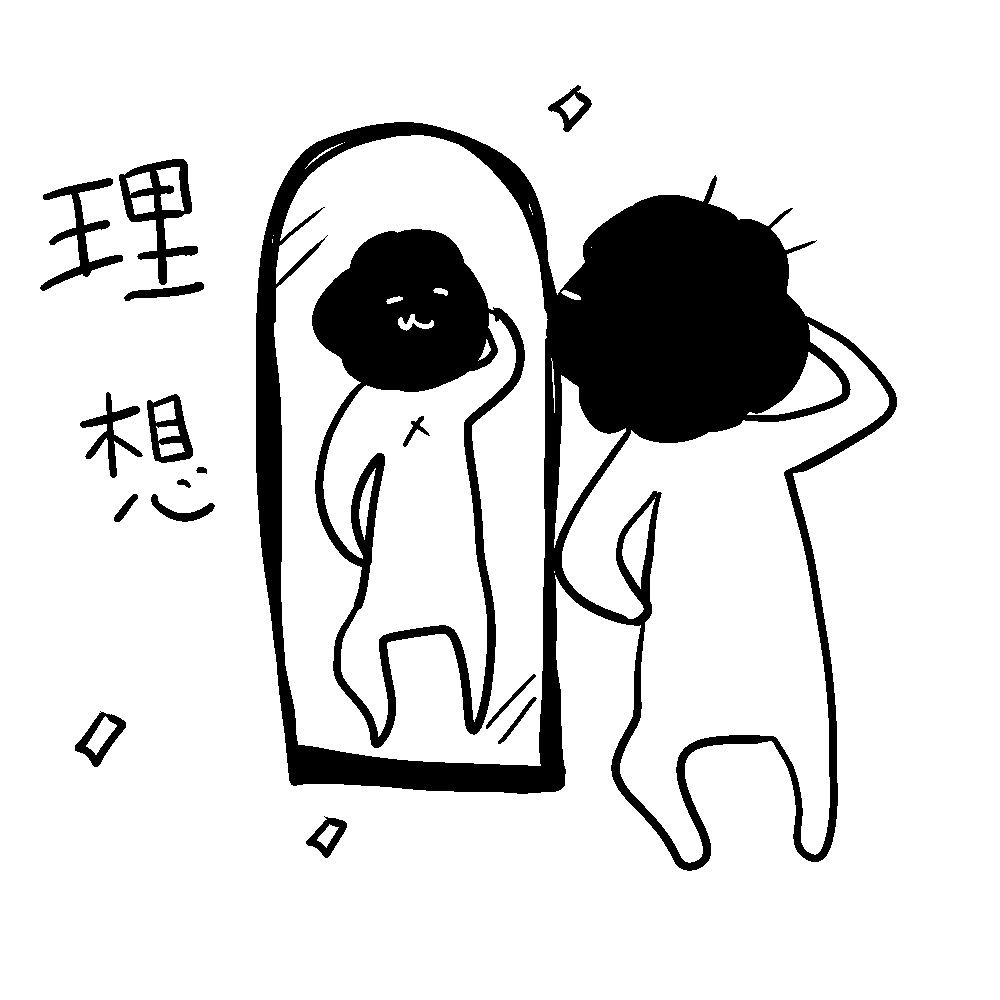

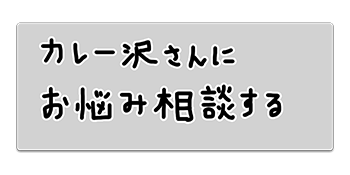
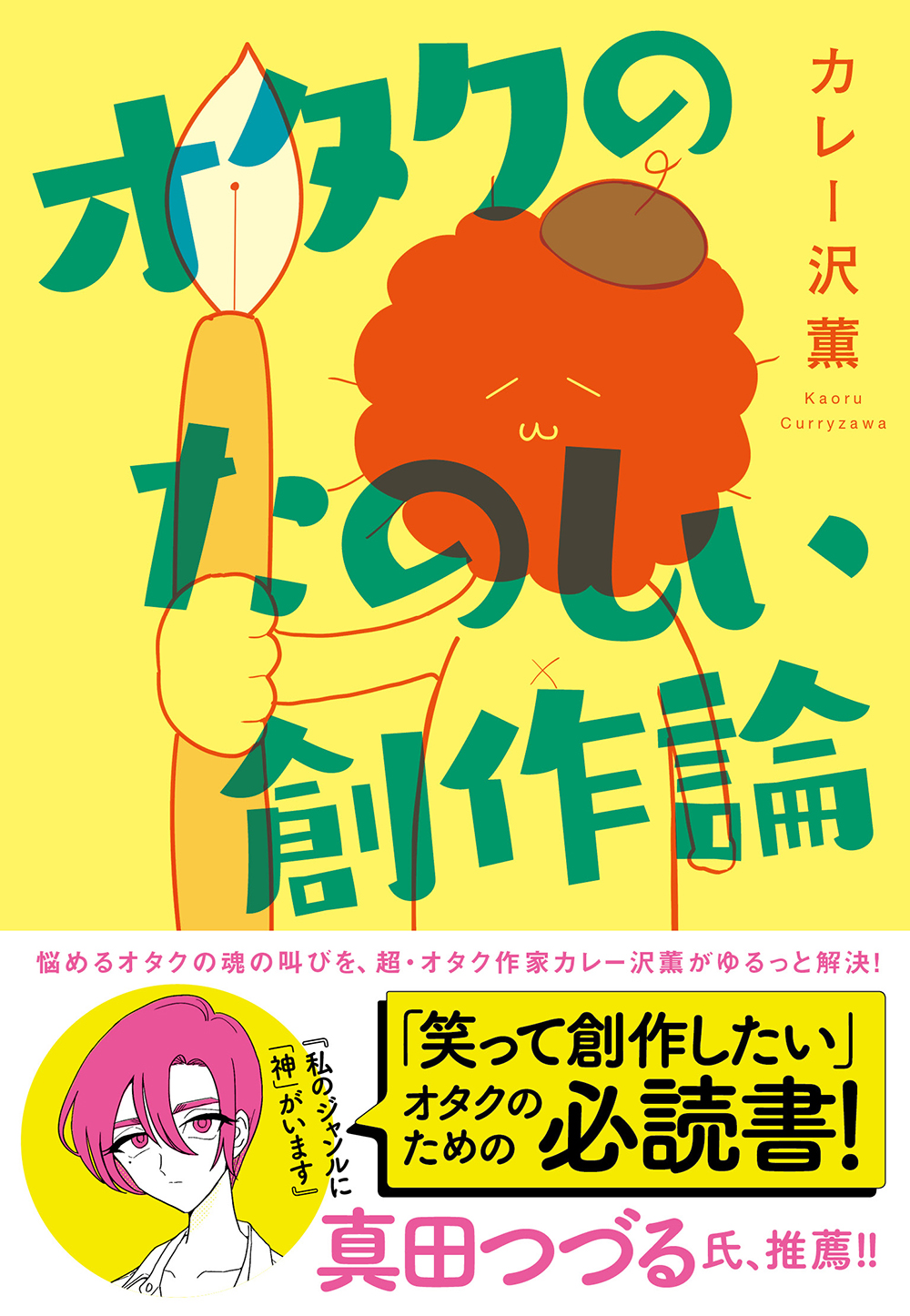
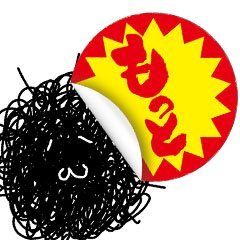
オンリーワンCP(ROMがギリ両手)で壁打ちイラスト投稿をかれこれ2年余り続けています。
最近、自分の絵が「まあまあ見れる」のか「ラクガキ未満の低クオリティ」なのか自己判断できなくなってしまいました。
供給がなさすぎることに加え、推しCPへの感情が狂カンストし、自作品に対して、出力元が自分というデバフフィルター貫通で「解釈一致! 最高!!」となってしまい冷静な判断ができず、ひょっとしたら最愛の推しを複雑骨折させているのではという不安が拭えません。
自分が満足ならいいじゃん……と思う反面、僅かながら人様の目がある以上客観視して改善できるものはしたいとも思っています。
マジで推しのすけべ絵以外に手を付ける気力が湧かないので添削応募にも踏み切れず、いいね数などの目に見える水準も同ジャンル創作者が不在のため比較ができません。
自分への客観視にコツはありませんでしょうか。